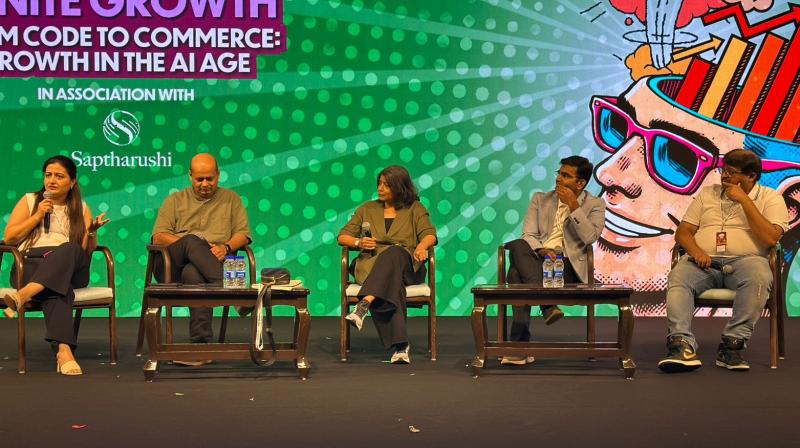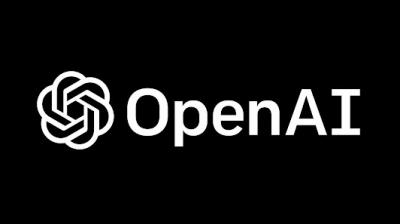On the second day of Goafest 2025, industry leaders gathered for a candid discussion on how artificial intelligence, particularly generative AI is no longer a futuristic promise but a present-day powerhouse transforming business, marketing, and consumer engagement.
Moderated by Anuradha Sen Gupta, the panel featured Arjun Choudhary, vice president, Swiggy; Sanket Prakash Tulangekar, director, MakeMyTrip; Tejas Apte, head of media and digital marketing, HUL; and Pragya Bijalwan, chief marketing officer, Voltas.
Together, they offered a grounded yet expansive look at how their organisations deploy AI across product development, customer service, and marketing.
Humanising technology by using AI
Bijalwan set the tone with a compelling vision of AI as a means to elevate comfort and personalisation, particularly in the heating, ventilation and air conditioning (HVAC) industry.
“When we talk about AI in an industry like Voltas, it’s all about providing convenience and comfort. AI offers limitless possibilities,” she said.
For consumers, this translates into intuitive, energy-efficient products that know their preferences.
“If you walk into a room and log into your app, the AC will understand what kind of temperature suits you,” Bijalwan explained. But the promise of AI isn’t just personalisation she noted it’s also about smarter energy management. “In India, energy efficiency is largely about frugality,” Bijalwan shared, citing features that help users track their consumption every week.
Voltas also uses AI for predictive maintenance.
“We analyse consumer data using CBP to predict when a spare part might be needed. This helps us prepare backend operations and ensure quick servicing. It’s all about being service-ready, at any time,” Bijalwan explained.
AI enhancing the supply chain
From R&D to retail shelves, Hindustan Unilever’s AI journey spans decades. Apte highlighted the company’s early investment in AI via its Agile Innovation Hub. “We track global trends and use 3D printers and bots to prototype products, whether it’s the texture of a moisturiser or the scent of a shampoo,” he shared.
The company’s content studio (U-Studio) built in-house five years ago uses these insights to generate and localise marketing content. But AI is also deep in the company’s manufacturing roots. “We now have two factories classified as Lighthouse factories by the WSU. These are almost dark factories, run by machines,” Apte revealed. “Someone sitting in our R&D campus can change the price of an SKU and it’s updated instantly.”
AI also powers HUL’s distribution through Shikhar, an app used by Kirana store owners to place orders. He said, “They can simply send us a photo of their shelf and we recommend what to stock. We even run hyperlocal marketing campaigns that personalise brand names and offers, using AI to generate thousands of such assets.”
For those curious about their media innovations, Apte offered a teaser: “Google ‘HUL Sangam and media’ - you will know what we are doing with AI in marketing.”
AI shapes consumer choice
At MakeMyTrip, AI’s influence is both visible and conversational. Tulangekar spoke of how their AI travel assistant, Myra, simplifies customer decisions by summarising reviews and enabling natural language queries.
“People go through dozens of reviews before booking accommodation. Now, we summarise them to give a holistic view of a property,” he explained.
Users can also ask Myra questions like, “Does this hotel have a swimming pool?” and get instant answers. Tulangekar added, “When a user gives us all the booking details—date, origin, destination, Myra automates the search and shows flight listings. It’s seamless.”
He also unveiled their upcoming ‘agentic framework’. “Think of it as multiple expert agents working together: hotel agents, flight agents, transport agents—even a destination discovery agent. myRA now orchestrates across these agents to answer complex travel queries like, ‘What’s the best time to visit North Goa?’”
Impact of Gen AI on consumer journey
For Swiggy, generative AI isn’t an experiment, it’s a strategic imperative. Choudhary shared how the leadership team has been engaging in weekly three-hour workshops on Gen AI platforms.
“This isn't a top-down command - it’s experiential learning. We’ve moved from simply understanding AI to generating our own code and product demos,” he noted.
One tangible outcome is the development of co-pilots for sales teams. Choudhary shared, “Earlier, salespeople would only look at half the dashboard. Now, with co-pilots, they can simply ask, ‘What’s happening in this area?’ and get an AI-powered answer. It makes decision-making far more intuitive.”
The big picture: AI as a force multiplier
The panel collectively underscored one truth: AI is no longer about cutting-edge gimmicks. It’s about tangible value - personalised service, operational agility, intelligent marketing, and empowered teams.
Gupta summarised, “From refrigerators to retail, from flights to face creams, AI is weaving itself into the DNA of how brands think, create and serve.”

.jpg)











